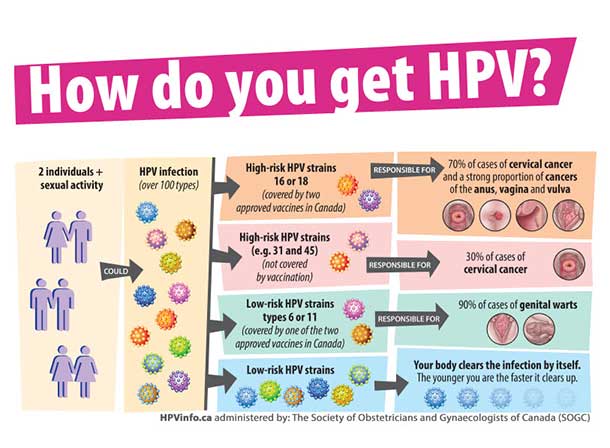THUNDER BAY – HEALTH – The Pap test: women know they need to do it, but do they know what the results mean? A negative result is obviously the best case scenario (see you in 3 years, primary care provider!), but what does an abnormal result mean? And what happens next?
Dr. Nick Escott is Northwestern Ontario’s Cervical Screening and Colposcopy Lead. He has been practicing medicine here for 39 years and has spent the last 13 years performing colposcopic examinations. He took the time to help answer some basic questions about abnormal Pap test results.
What does an abnormal Pap test mean? How serious is it?
A Pap test is a cell sample from a woman’s cervix which is sent to a lab to be looked at under a microscope. If the cells look abnormal, then the result will be an abnormal Pap test.
Most abnormal Pap tests are ‘mildly abnormal’. This means that they will probably get better on their own and that the changes aren’t that serious. Since abnormal changes to the cells are caused by Human papillomavirus (HPV) infections, they can be cleared by a woman’s own immune system just like other viral infections (common cold), and your primary care provider will typically recommend a follow-up Pap test to see if the infection has cleared up on its own.
Women who have a Pap test in Ontario will receive a letter in the mail from Cancer Care Ontario notifying them about their Pap test result. There is no need to panic or stress if your test result is ‘abnormal’; it doesn’t automatically mean that you have cancer.
Should I be worried that an abnormal Pap test means that I have cancer?
No, most women shouldn’t be worried that an abnormal Pap test means that they have cancer. HPV infection is very common. World-wide it is estimated that 80 percent of men and women will be infected with some type of HPV in their lifetime. The abnormal test means that you might have an HPV infection that flared up when you were due for your Pap test and that could clear up on its own. This is relatively common, so there is no need to stress. However, it is still important to go for your regular Pap test to make sure it’s just a transient infection.
If I have an abnormal Pap test, what do I do?
If the result is ‘mildly abnormal’, then you repeat your Pap test in 6 months. Usually your doctor or primary care provider will call you and ask you to come back in 6 months. If this repeat test result is abnormal, then you would go for a colposcopy for further examination.
How important is it that I follow-up after an abnormal test?
It is very important that you go for your follow-up appointment. Follow your primary care provider’s instructions. Going for your follow-up test could ensure that you have cleared your infection. Or, on the more rare chance that there is a problem, the infection can be treated easily – before it becomes cancerous and requires more serious treatment. Cervical cancer is preventable with regular Pap test screening.
What is a colposcopy? When would a woman need one?
A colposcopy is not a ‘colonoscopy’, which is a procedure that examines the colon for colorectal cancer. Rather, a colposcopy is like a Pap test but a solution is used to bathe the cervix to highlight any abnormal areas. The set-up is essentially the same as a Pap test where a woman’s legs are in stirrups and a speculum is used to open the vagina to get a clear view of the cervix. The doctor then uses a colposcope (which is positioned just over a foot away from the vagina) to view the cervix under magnification so specific abnormal areas can be identified. If there are abnormal areas, a very small tissue sample will be taken and sent to the lab to confirm whether the cells are pre-cancerous.
A colposcopy is not to be feared. It is like getting a Pap test and takes about 2 minutes to complete, either at the hospital or in a doctor’s office.
Are there any signs or symptoms that I can watch for?
No, there are no signs or symptoms until the infection has become cancer. You can’t feel an HPV infection and won’t know if there are any abnormal changes to your cervical cells. HPV can also have a dormant period before it starts producing abnormal cells. This is why it important to get your regular Pap test screening. It can help us to detect persistent infections.
Do not fear a Pap test or any other follow-up tests because in most cases, the infections will clear themselves. If there is a persistent HPV infection causing pre-cancerous cells, it can be treated quickly and painlessly before it becomes cancer. It is very worthwhile to make cervical cancer screening a health priority.
What can I do to prevent cervical cancer?
There are a few things that are important for women to remember when it comes to preventing cervical cancer:
- Complete your regular Pap test (as per Ontario’s Cancer Screening Guidelines).
- If you have an abnormal test result, follow-up according to your primary care provider’s instructions.
- If you need a colposcopy, don’t fear it. It is no worse than going for a Pap test.









